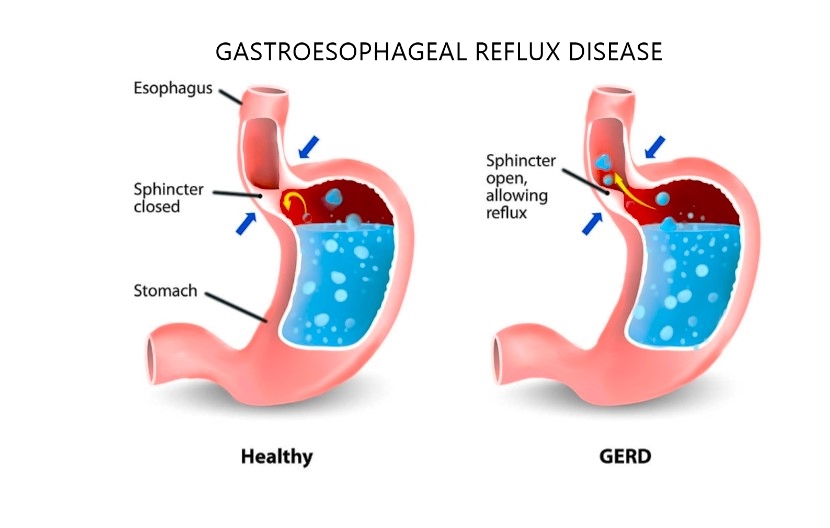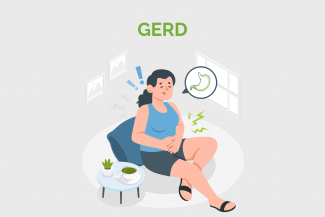
What is Gastroesophageal Reflux Disease (GERD)?
Gastroesophageal Reflux Disease (GERD) is a digestive disorder.
Gastroesophageal refers to the stomach and esophagus (food pipe). Reflux means to flow back or return. Gastroesophageal reflux is a condition in which the contents of the stomach (in liquid form) backs up or refluxes into the esophagus.
The regurgitated liquid usually contains acid and pepsin that are produced by the stomach. (Pepsin is an enzyme that begins the digestion of proteins in the stomach.) The liquid can inflame and damage the esophagus (esophagitis). This condition is also known as acid reflux.

Are you at risk of developing GERD: http://www.patientsengage.com/conditions/gerd/causes-risk-factors
Symptoms: http://www.patientsengage.com/conditions/gerd/signs-symptoms
What tests do you need to have done: http://www.patientsengage.com/conditions/gerd/diagnosis-tests
Treatment of GERD: http://www.patientsengage.com/conditions/gerd/treatments
Managing GERD: http://www.patientsengage.com/conditions/gerd/gerd-management
Caregiver tips: http://www.patientsengage.com/conditions/gerd/caring-tips







